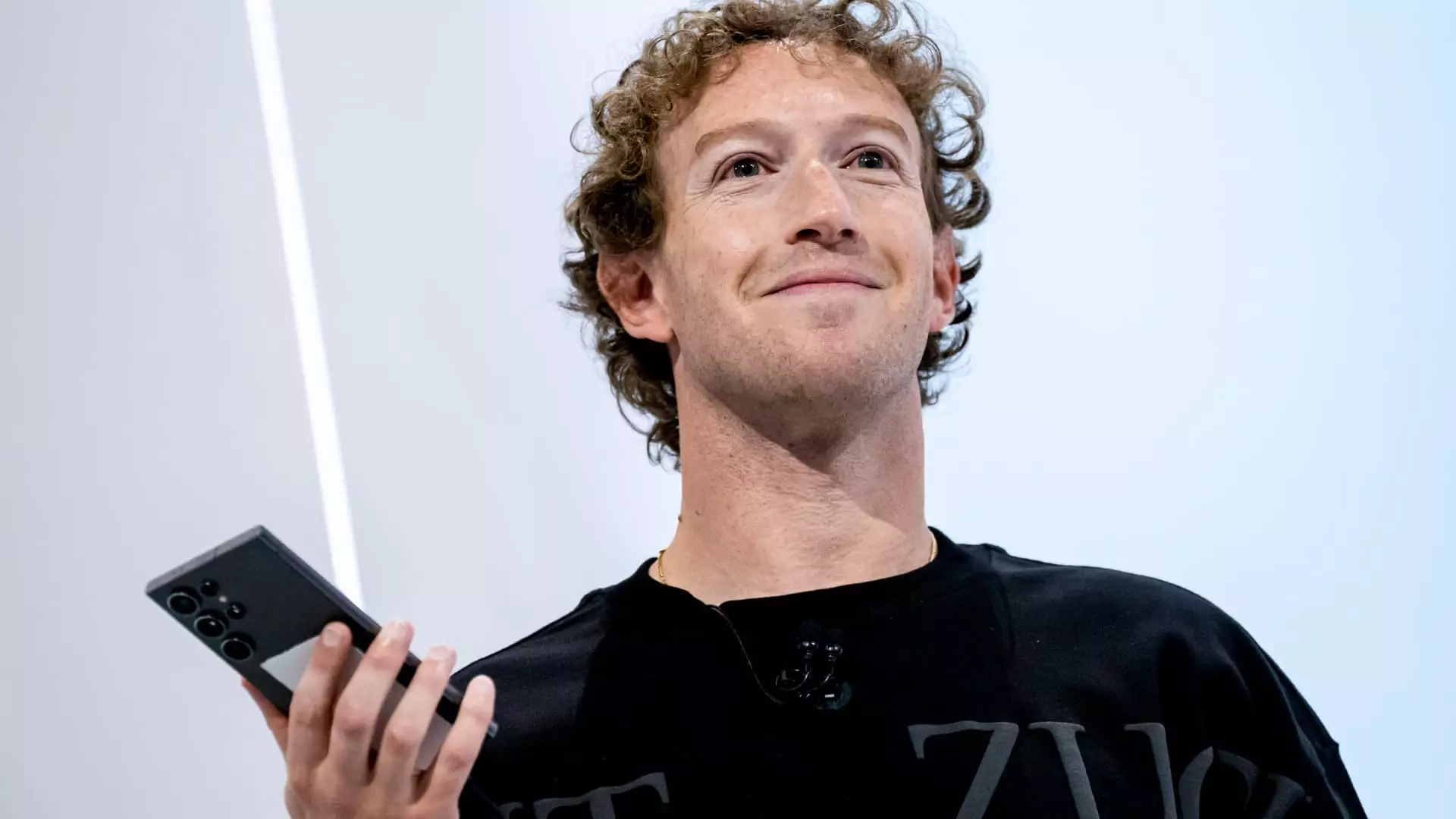In the ever-evolving landscape of technology, competition among giants like Meta and Apple shapes consumer experiences and drives innovation. Recently, during a conversation on the widely-followed “Joe Rogan Experience” podcast, Meta CEO Mark Zuckerberg unleashed a critical analysis of Apple’s innovation trajectory and business practices. Highlighting a blend of admiration and frustration, Zuckerberg’s comments tap into a broader conversation about creativity, competition, and the future of technology in the hands of familiar corporate behemoths.
Zuckerberg offered a nuanced perspective on the impact of the iPhone. He recognized the remarkable achievement of bringing mobile technology to the masses, which has enabled unprecedented opportunities for connectivity and innovation. Yet, he vehemently pointed out that Apple’s progress has stagnated since the launch of the original iPhone. He lamented that the company has not introduced significant innovations since the early days under Steve Jobs, suggesting that Apple is leveraging its established platform without driving forward groundbreaking developments.
This sentiment echoes a growing discontent among consumers and developers alike. Many have noticed that the incremental updates to hardware—fluctuating from one iPhone iteration to the next—lack the punch of transformative breakthroughs. Instead, they are greeted with features that, while polished, fail to captivate or convince customers to upgrade, signifying a dangerous plateau in innovation.
A Financial Tightrope: Revenue Strategies
According to Zuckerberg, Apple’s current business strategy revolves primarily around extracting value from consumers rather than fostering revolutionary products. He voiced concern over the company’s hefty 30% commission on App Store sales, which developers face as a ‘tax’ for participating in Apple’s ecosystem. This practice stands as a barrier to entry for many emerging tech companies and raises questions about fairness in an increasingly monopolistic market.
The suggestion that Apple is squeezing profits out of its user base—not through innovation but through stringent economic tactics—fits into a larger narrative regarding the ethics of big tech. As the industry witnesses a growing backlash against monopolistic behavior, Zuckerberg’s critique sheds light on Apple’s approach of prioritizing revenue over customer satisfaction and developer relations.
Zuckerberg also tackled Apple’s claim of prioritizing privacy and security as a defense for its restrictive practices. He raised an important counterpoint: if Apple’s systems were designed with better security protocols, the need for such stringent rules could be mitigated. Essentially, he argues that Apple’s tight control over connectivity stems from its own design shortcomings rather than a genuine concern for user safety. Instead of empowering diverse connections and third-party products, Apple’s policies create a walled garden that stifles competition.
This realization invites scrutiny into how tech companies construct their narratives. While many promote user safety primarily to maintain their own dominance, consumers are beginning to demand more transparency and accountability regarding these claims. The tech landscape is at a crossroads, where traditional giants such as Apple must reevaluate their strategies to sustain market relevance and trust.
The Future of Virtual Technology: Meta’s Vision Versus Apple’s Ambitions
Turning to hardware innovation, Zuckerberg did not hesitate to cover Apple’s foray into virtual and augmented reality with the Vision Pro headset. He characterized the product as an ambitious venture but criticized its initial performance in the market. While Zuckerberg acknowledged the challenges inherent in launching new technology, he implied that Apple’s performance fell short of expectations and has much to prove in this competitive landscape.
Zuckerberg’s candid thoughts on the Vision Pro project emphasize the importance of iterative improvement in tech development. He reinforced the notion that companies must embrace the road to innovation, which often includes missteps and learning opportunities. Meta’s own experience with its Quest headsets highlights the struggles organizations face as they navigate the uncertain waters of new technology, hinting that there is still much room for growth for both Meta and Apple in this space.
Ultimately, Zuckerberg’s critique raises a compelling challenge: Big Tech leaders must adopt a more innovative mindset that prioritizes genuine advancements over profit maximization. As he called for a decrease in arbitrary rules that stymie creativity, it becomes evident that both consumers and developers are yearning for a more open environment that encourages breakthroughs rather than barriers. As the tech world watches, the response from giants like Apple will be a vital indicator of how the industry can evolve to meet the demands of the 21st century.

